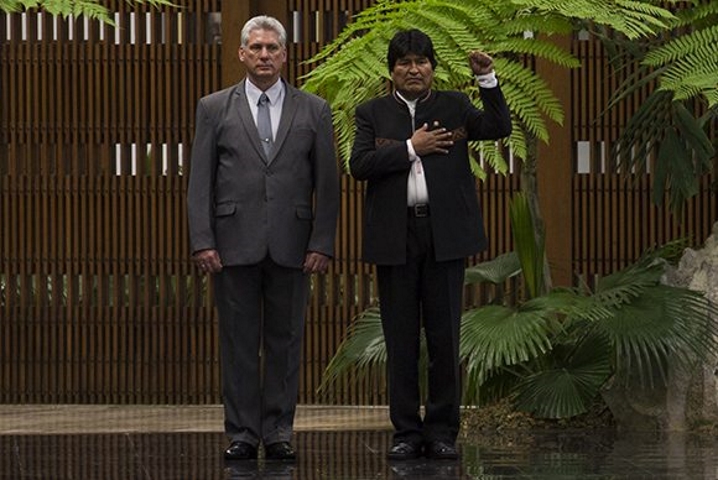MIAMI, United States. – Former Bolivian president Evo Morales was charged this Monday with the crime of “aggravated human trafficking” and faces a current arrest warrant, according to the departmental prosecutor of Tarija, Sandra Gutiérrez, at press conference.
In addition to the former president, the parents of the alleged victim, Idelsa Pozo Saavedra and Emeterio Vargas Mamani, are accused.
“We are waiting for the precautionary judge to set the date and time for the precautionary measures hearing to take place,” declared Gutiérrez, who explained that Morales would have had relations with a minor during his third presidential term, in 2015.
When he did not appear to testify, the Prosecutor’s Office decided to formalize the accusation and activate the arrest warrant. “There is nothing political here,” said the prosecutor, emphasizing that the case seeks to “protect the rights of a person who (…) has been humiliated.”
According to the authority, one of the victim’s parents, Emeterio Vargas Mamani, is already in preventive detention. The Prosecutor’s Office maintains that both parents intended to obtain political benefits at the expense of their daughter. The investigations, begun at the end of September, led to the conclusion that these actions fit into the criminal figure of human trafficking, orienting the case towards that legal perspective.
The former president has not issued immediate comments on the accusation, although for months he has denounced political persecution by the current government, led by Luis Arce. His defense, headed by lawyer Wilfredo Chávez, claims to have not been formally notified. Meanwhile, Bolivian authorities claim to have requested an immigration alert against Morales and Pozo.
Tension in Bolivia has increased in recent years due to the break between Morales and Arce, former allies of the Movement Towards Socialism (MAS). Morales intends to run for president again in 2025, facing Arce’s re-election project. In this context, the accusations against the former president have worsened internal divisions and the climate of political instability.














